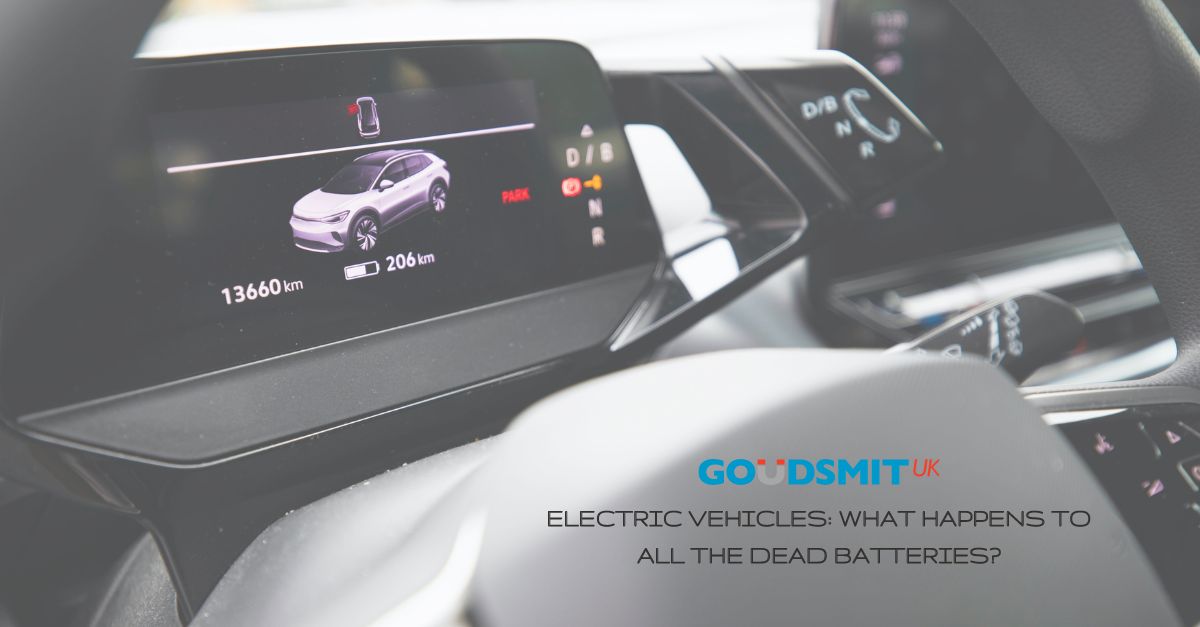Reports suggest that there were approximately 11 million vehicles on the world’s roads in 2020, with the number set to further increase by the end of the decade. When these vehicles reach the end of their life, there will approximately 200,000 metric tons of lithium-ion batteries which will need to be disposed of, recycled, or reused. However, it is yet to be determined how this will be done in an economical and sustainable manner.
The EV battery recycling industry is still in its early stages since most EV’s have only been on the road a few years. There is still a significant amount of research and development to be done to find the most sustainable solution. Without efficient recycling, we face a highly toxic problem. However, with robust recycling the environmental benefits of EV’s increase even more.
Why EV battery recycling is essential
The most expensive and key component in EV’s is lithium-ion batteries. While electric vehicles emit no greenhouse gases during operation, the manufacturing process can contribute up to a quarter of the total global warming emissions in the life cycle of the vehicle. Most of the emissions come from the production of electricity to store in the battery.
Lithium-ion batteries must be kept out of landfills due to their toxicity and flammability. Recycling and reusing EV batteries can play a large role in reducing the need for lithium, cobalt, and nickel, and thus reduce the human and environmental costs of battery manufacturing and disposal.
Challenges to recycling
The biggest challenge of large-scale EV battery recycling is the numerous chemistries of the batteries.
Another challenge is the many form factors that the batteries come in. Unlike ordinary alkaline or nickel-cadmium battery cells used in the home or the lead-acid batteries used in fuel vehicles, EV batteries do not come in identical sizes and shapes. Rather, individual battery cells are arranged in modules that are themselves organised in a pack, with all parts connected by hi-tech circuitry and for safety reasons tightly sealed with nearly unbreakable glues. It’s necessary to combine such battery cells this way for the power and energy densities that EVs require.
With so many different form factors, disassembling and recycling each one can take hours. Therefore, raising the cost of the materials to the point where it’s currently cheaper for manufacturers to buy new materials than recycled ones.
Reuse before recycle
Studies show that batteries lose approximately 2.3% of their energy capacity annually. Therefore, a new 64kWh battery might have 48.4kWh (76%) of its original storage capacity after 12 years. On average, cars remain on the road in the UK for 11.6 years, soa battery with 48kWh of capacity is still a useful product with a second life.
Additionally, EV batteries that have reached the end of their life can still be used as energy storage devices. Such applications include:
- Microgrids to provide power to communities and schools
- Utility-scale storage to provide reliability and resilience to the electricity grid
- To power robots.
Reusing EV batteries can double their useful lifetime, at which point they can be recycled.
Goudsmit UK
Closing the gap between EV battery manufacturing and recycling will make electric vehicles an even more sustainable alternative to fuel-powered cars.
With our ISO 9001 quality standard, Goudsmit UK can provide quality magnets, magnetic assemblies and components into the automotive industry. We’ve helped numerous customers with their cost-reduction initiatives which involved:
- Improving the mechanical properties of parts
- Reducing material and part requirements
- Lowering the cost of engineering components
For more information download our products and services brochure.
Contact us at info@goudsmit.co.uk or on +44 (0) 2890 271 001.







